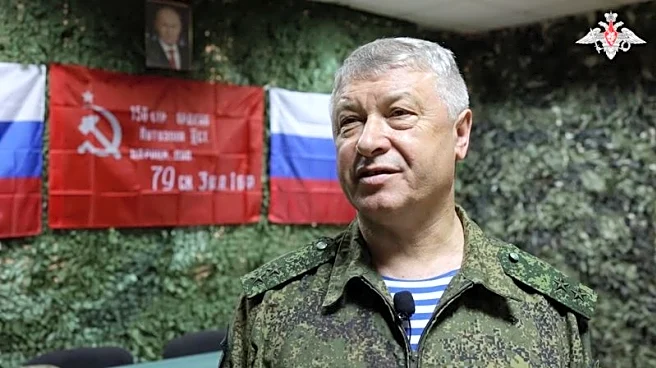Rapid Read • 8 min read
President Trump and Russian leader Vladimir Putin have engaged in discussions regarding NATO-style security guarantees for Ukraine. This development emerged from a summit held in Alaska, where President Trump's special envoy, Steve Witkoff, revealed that the U.S. and European allies could potentially offer Ukraine protections similar to NATO's Article 5. This article stipulates that an attack on one member is considered an attack on all, necessitating collective defense. The discussions aim to address key issues beyond territorial concerns, with the goal of establishing a peace deal to end the ongoing conflict in Ukraine. However, Secretary of State Marco Rubio expressed caution, noting that any U.S. commitment to such security guarantees would be a significant decision for President Trump. The talks also included the possibility of China, a Kremlin ally, being one of the security guarantors.
AD
The potential agreement for NATO-style security guarantees for Ukraine is significant as it could reshape the geopolitical landscape in Eastern Europe. Such guarantees might deter future Russian aggression, providing Ukraine with a sense of security without formal NATO membership, which Russia opposes. This development could also influence U.S.-Russia relations and impact the broader transatlantic alliance. For Ukraine, securing these guarantees could be a strategic victory, enhancing its defense capabilities. However, the involvement of China as a guarantor introduces a complex dynamic, potentially affecting U.S.-China relations. The outcome of these discussions could have far-reaching implications for international security and diplomatic relations.
The next steps involve further negotiations to finalize the details of the security guarantees. President Trump is expected to meet with Ukrainian President Volodymyr Zelensky at the White House to discuss the proposed arrangements. The U.S. administration will need to navigate the diplomatic intricacies of involving European allies and potentially China in the security framework. Additionally, the U.S. Congress and NATO allies may weigh in on the proposed guarantees, influencing the final outcome. The international community will closely monitor these developments, as they could set a precedent for future security arrangements in conflict zones.
The discussions highlight the ongoing challenge of balancing national sovereignty with international security commitments. The potential inclusion of China as a security guarantor raises questions about the shifting alliances in global politics. Furthermore, the negotiations underscore the delicate nature of territorial disputes and the complexities of mediating peace agreements. The outcome could influence future diplomatic strategies and the role of major powers in conflict resolution.
AD
More Stories You Might Enjoy












